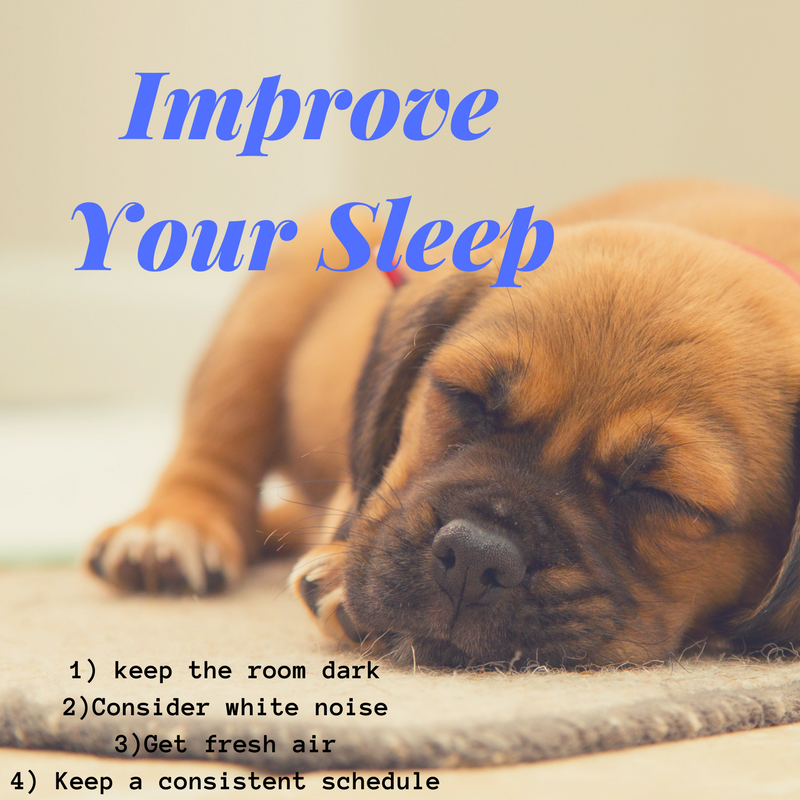
4 Tips for Improving Sleep
Have you ever heard people you know talk about how little sleep they got the night before for some reason or another? I have, and sometimes it seems like they are almost proud of the fact. When I was in college, I knew plenty of students who would buy energy drinks to study all night for a test or work on a paper. Being more of a mid-day person, myself, I never understood it. I just thought nighttime was for sleeping. Years later, when I had my first child and I was constantly reading about how to keep him happy and healthy, I read books and articles that confirmed my feelings: everyone needs sleep. More than studying, more than working on that last little thing to make a project just right. Sleep or lack thereof is linked to a number of issues like depression, anxiety, obesity, ADD/ADHD, mood swings, and much more. So, why cut corners on sleep? Maybe the reason why you don’t have restful nights is because you aren’t sleeping right. Yep, there is a better way to sleep.
- Keep it dark. I mean, really dark. Not just room darkening shades, but more like turning off your appliances or covering up the spots that emit bright lights in your room. (I have a notorious wifi router that wakes me up if I don’t cover it with a dark shirt or something.) As your day is winding down, turn down the lights in your house and turn off the TV. Your body can calm down better when the half an hour before you go to bed is quiet and dimmed. Some studies suggest that if you watch TV or spend time on the computer or phone for that half hour before bed, your brain will keep trying to process what you watched, which will cause it to take much longer to fall asleep.
- Consider white noise. When I suggest this one to other people, they always kind of seem annoyed. What? MORE noise? They always say that they need it to be perfectly quiet or they can’t sleep. Well, I use white noise for my children as a way to cover up the noises going on in the house while they sleep. When I first slept in the same room with my son on a trip, I hated that noise. When we ended up in a circumstance where we had to sleep with him for several weeks in the same room, my attitude easily changed. I noticed that even though I wasn’t used to it at first, I actually slept so much better! I woke up less, and felt better rested in the morning. There are free phone apps for this kind of thing, so if you want to try it there’s nothing to lose.
- Fresh air. Did you know that Swedish parents bundle up their children and put them on the front porch to sleep, even in the winter? They believe that the fresh air is best for their sleep. When you go to bed, try opening a window and bundling up with blankets instead of turning up the heat. You’ll be less likely to wake up from overheating, and you’re body will feel less of a need to toss and turn. Not to mention, fresh air is easier to breathe than central, recycled air flowing around.
- Keep a consistent schedule. Also sounds like a no-brainer, but going to bed at the same time every night is one of the best ways to feel good during the day and to sleep better at night. It keeps your circadian rhythm at a natural pace and helps you fall asleep faster with the associated time. On top of that, if you can or if you like to tend to sleep in, go to sleep earlier and wake up earlier. Many studies have shown that it is linked to better productivity and you’ll be surprised at how much more time you have on your hands.
Lifeline Connections is committed to helping you live a better life. We provide services customized to fit your needs and desires for what you want to get out of rehabilitation. If you or a loved one lives in the Vancouver, WA or Portland, OR areas and are in need of residential care, outpatient care, or care for co-occurring disorders, then please give us a call or email us.
Phone: 360-397-8246 ext. 7580
Email: admissions@lifelineconnections.org
